![What I Talk About When I Talk About Running 當我談跑步時我談些什麼 [平裝]](https://pic.windowsfront.com/19014556/rBEQWVFbnigIAAAAAAJjxNFel8QAADXPQKmaS4AAmPc509.jpg)

具體描述
內容簡介
In 1982, having sold his jazz bar to devote himself to writing, Murakami began running to keep fit. A year later, he'd completed a solo course from Athens to Marathon, and now, after dozens of such races, not to mention triathlons and a slew of critically acclaimed books, he reflects upon the influence the sport has had on his life and on his writing. Equal parts travelogue, training log, and reminiscence, this revealing memoir covers his four-month preparation for the 2005 New York City Marathon and settings ranging from Tokyo's Jingu Gaien gardens, where he once shared the course with an Olympian, to the Charles River in Boston among young women who outpace him. Through this marvellous lens of sport emerges a cornucopia of memories and insights: the eureka moment when he decided to become a writer, his greatest triumphs and disappointments, his passion for vintage LPs, and the experience, after fifty, of seeing his race times improve and then fall back. By turns funny and sobering, playful and philosophical.作者簡介
Haruki Murakami was born in Kyoto in 1949 and now lives near Tokyo. His work has been translated into forty-two languages. The most recent of his many honours is the Franz Kafka Prize.精彩書評
"Murakami's latest is a nonfiction work mostly concerned with his thoughts on the long-distance running he has engaged in for much of his adult life. Through a mix of adapted diary entries, old essays, reminiscences and life advice, Murakami crafts a charming little volume notable for its good-natured and intimate tone. While the subject matter is radically different from the fabulous and surreal fiction that Murakami (The Wind-Up Bird Chronicle) most often produces, longtime readers will recognize the source of the isolated, journeying protagonists of the author's novels in the formative running experiences recounted. Murakami's insistence on focusing almost exclusively on running can grow somewhat tedious over the course of the book, but discrete, absorbing episodes, such as a will-breaking 62-mile ultramarathon and a solo re-creation of the historic first marathon in Greece serve as dynamic and well-rendered highlights. Murakami offers precious little insight into much of his life as a writer, but what he does provide should be of value to those trying to understand the author's long and fruitful career. An early section recounting Murakami's transition from nightclub owner to novelist offers a particularly vivid picture of an artist soaring into flight for the first time."--Publishers Weekly
"Haruki Murakami has established himself as one of the most interesting and innovative novelists of the last two decades, combining pop culture with a magic-realistic sensibility that has garnered the author a faithful following. What I Talk About When I Talk About Running couldn't differ more from the rest of Murakami's work. This slender volume catalogs the author's love for that most solitary of athletic endeavors, though even Murakami's prodigious talent as a writer can't quite bridge the gap between the cultish world of hard-core running and a broader audience. This hit-and-miss effort—with something, literally, lost in the translation and some lazy writing—will be welcomed by a small (probably athletic) audience, but may not reach readers who aren't already on board with Murakami or running."
--Bookmarks Magazine
精彩書摘
AUGUST 5, 2005 . KAUAI, HAWAIIWho's Going to Laugh at Mick Jagger?
I'm on Kauai, in Hawaii, today, Friday, August 5, 2005. It's unbelievably clear and sunny, not a cloud in the sky. As if the concept clouds doesn't even exist. I came here at the end of July and, as always, we rented a condo. During the mornings, when it's cool, I sit at my desk, writing all sorts of things. Like now: I'm writing this, a piece on running that I can pretty much compose as I wish. It's summer, so naturally it's hot. Hawaii's been called the island of eternal summer, but since it's in the Northern Hemisphere there are, arguably, four seasons of a sort. Summer is somewhat hotter than winter. I spend a lot of time in Cambridge, Massachusetts, and compared to Cambridge--so muggy and hot with all its bricks and concrete it's like a form of torture--summer in Hawaii is a veritable paradise. No need for an air conditioner here--just leave the window open, and a refreshing breeze blows in. People in Cambridge are always surprised when they hear I'm spending August in Hawaii. "Why would you want to spend summer in a hot place like that?" they invariably ask. But they don't know what it's like. How the constant trade winds from the northeast make summers cool. How happy life is here, where we can enjoy lounging around, reading a book in the shade of trees, or, if the notion strikes us, go down, just as we are, for a dip in the inlet.
Since I arrived in Hawaii I've run about an hour every day, six days a week. It's two and a half months now since I resumed my old lifestyle in which, unless it's totally unavoidable, I run every single day. Today I ran for an hour and ten minutes, listening on my Walkman to two albums by the Lovin' Spoonful--Daydream and Hums of the Lovin' Spoonful--which I'd recorded on an MD disc.
Right now I'm aiming at increasing the distance I run, so speed is less of an issue. As long as I can run a certain distance, that's all I care about. Sometimes I run fast when I feel like it, but if I increase the pace I shorten the amount of time I run, the point being to let the exhilaration I feel at the end of each run carry over to the next day. This is the same sort of tack I find necessary when writing a novel. I stop every day right at the point where I feel I can write more. Do that, and the next day's work goes surprisingly smoothly. I think Ernest Hemingway did something like that. To keep on going, you have to keep up the rhythm. This is the important thing for long-term projects. Once you set the pace, the rest will follow. The problem is getting the flywheel to spin at a set speed--and to get to that point takes as much concentration and effort as you can manage.
It rained for a short time while I was running, but it was a cooling rain that felt good. A thick cloud blew in from the ocean right over me, and a gentle rain fell for a while, but then, as if it had remembered, "Oh, I've got to do some errands!," it whisked itself away without so much as a glance back. And then the merciless sun was back, scorching the ground. It's a very easy-to-understand weather pattern. Nothing abstruse or ambivalent about it, not a speck of the metaphor or the symbolic. On the way I passed a few other joggers, about an equal number of men and women. The energetic ones were zipping down the road, slicing through the air like they had robbers at their heels. Others, overweight, huffed and puffed, their eyes half closed, their shoulders slumped like this was the last thing in the world they wanted to be doing. They looked like maybe a week ago their doctors had told them they have diabetes and warned them they had to start exercising. I'm somewhere in the middle.
I love listening to the Lovin' Spoonful. Their music is sort of laid-back and never pretentious. Listening to this soothing music brings back a lot of memories of the 1960s. Nothing really special, though. If they were to make a movie about my life (just the thought of which scares me), these would be the scenes they'd leave on the cutting-room floor. "We can leave this episode out," the editor would explain. "It's not bad, but it's sort of ordinary and doesn't amount to much." Those kinds of memories--unpretentious, commonplace. But for me, they're all meaningful and valuable. As each of these memories flits across my mind, I'm sure I unconsciously smile, or give a slight frown. Commonplace they might be, but the accumulation of these memories has led to one result: me. Me here and now, on the north shore of Kauai. Sometimes when I think of life, I feel like a piece of driftwood washed up on shore.
As I run, the trade winds blowing in from the direction of the lighthouse rustle the leaves of the eucalyptus over my head.
I began living in Cambridge, Massachusetts, at the end of May of this year, and running has once again been the mainstay of my daily routine ever since. I'm seriously running now. By seriously I mean thirty-six miles a week. In other words, six miles a day, six days a week. It would be better if I ran seven days, but I have to factor in rainy days, and days when work keeps me too busy. There are some days, too, when frankly I just feel too tired to run. Taking all this into account, I leave one day a week as a day off. So, at thirty-six miles per week, I cover 156 miles every month, which for me is my standard for serious running.
In June I followed this plan exactly, running 156 miles on the nose. In July I increased the distance and covered 186 miles. I averaged six miles every day, without taking a single day off. I don't mean I covered precisely six miles every day. If I ran nine miles one day, the next day I'd do only three. (At a jogging pace I generally can cover six miles in an hour.) For me this is most definitely running at a serious level. And since I came to Hawaii I've kept up this pace. It had been far too long since I'd been able to run these distances and keep up this kind of fixed schedule.
There are several reasons why, at a certain point in my life, I stopped running seriously. First of all, my life has been getting busier, and free time is increasingly at a premium. When I was younger it wasn't as if I had as much free time as I wanted, but at least I didn't have as many miscellaneous chores as I do now. I don't know why, but the older you get, the busier you become. Another reason is that I've gotten more interested in triathlons, rather than marathons. Triathlons, of course, involve swimming and cycling in addition to running. The running part isn't a problem for me, but in order to master the other two legs of the event I had to devote a great deal of time to training in swimming and biking. I had to start over from scratch with swimming, relearning the correct form, learning the right biking techniques, and training the necessary muscles. All of this took time and effort, and as a result I had less time to devote to running.
Probably the main reason, though, was that at a certain point I'd simply grown tired of it. I started running in the fall of 1982 and have been running since then for nearly twenty-three years. Over this period I've jogged almost every day, run in at least one marathon every year--twenty-three up till now--and participated in more long-distance races all around the world than I care to count. Long-distance running suits my personality, though, and of all the habits I've acquired over my lifetime I'd have to say this one has been the most helpful, the most meaningful. Running without a break for more than two decades has also made me stronger, both physically and emotionally.
The thing is, I'm not much for team sports. That's just the way I am. Whenever I play soccer or baseball--actually, since becoming an adult this is almost never--I never feel comfortable. Maybe it's because I don't have any brothers, but I could never get into the kind of games you play with others. I'm also not very good at-one-on-one sports like tennis. I enjoy squash, but generally when it comes to a game against someone, the competitive aspect makes me uncomfortable. And when it comes to martial arts, too, you can count me out.
Don't misunderstand me--I'm not totally uncompetitive. It's just that for some reason I never cared all that much whether I beat others or lost to them. This sentiment remained pretty much unchanged after I grew up. It doesn't matter what field you're talking about--beating somebody else just doesn't do it for me. I'm much more interested in whether I reach the goals that I set for myself, so in this sense long-distance running is the perfect fit for a mindset like mine.
Marathon runners will understand what I mean. We don't really care whether we beat any other particular runner. World-class runners, of course, want to outdo their closest rivals, but for your average, everyday runner, individual rivalry isn't a major issue. I'm sure there are garden-variety runners whose desire to beat a particular rival spurs them on to train harder. But what happens if their rival, for whatever reason, drops out of the competition? Their motivation for running would disappear or at least diminish, and it'd be hard for them to remain runners for long.
Most ordinary runners are motivated by an individual goal, more than anything: namely, a time they want to beat. As long as he can beat that time, a runner will feel he's accomplished what he set out to do, and if he can't, then he'll feel he hasn't. Even if he doesn't break the time he'd hoped for, as long as he has the sense of satisfaction at having done his very best--and, possibly, having made some significant discovery about himself in the process--then that in itself is an accomplishment, a positive feeling he can carry over to the next race.
The same can be said about my profession. In the novelist's profession, as far as I'm concerned, there's no such thing as winning or losing. Maybe numbers of copies sold, awards won, and critics' praise serve as outward standards for accomplishment in literature, but none of them really matt...
用戶評價
作為一名對文學作品的錶達方式非常敏感的讀者,我曾聽說過《當我談跑步時我談些什麼》這本書。雖然我尚未接觸過這本書的具體內容,但我對其獨特的書名和作者的聲譽,已經産生瞭濃厚的興趣。我預想,村上春樹在這本書中,不會僅僅停留在對跑步這項運動本身的敘述,而是會將其作為一種媒介,去深入探索更廣泛的生活哲學。我猜想,他會以一種非常具象化的方式,將跑步時的感官體驗,如腳下的路麵、空氣的溫度、身體的律動,與他內心深處的思考和情感聯係起來。我期待他能運用他標誌性的、略帶疏離但又充滿細膩觀察的文字,來描繪跑步帶給他的那種孤獨感,以及在這種孤獨中他如何找到內心的平靜與力量。我甚至想象,他會提及在長跑中,思維是如何變得異常活躍,那些看似雜亂無章的思緒,如何在運動的節奏中逐漸梳理清晰,最終形成他對世界、對人生的一種獨特認知。這本書,對我而言,更像是一場關於“過程”的哲學探討,它可能揭示齣,在堅持一項看似枯燥的活動中,所能獲得的內在成長和精神升華。
評分我一直在尋找一本能夠讓我真正沉浸其中的書,而《當我談跑步時我談些什麼》在我瀏覽書店時,似乎有著一種獨特的吸引力。盡管我本人並非狂熱的跑步愛好者,但我一直對那些能夠深入探討個人生活方式與內在世界聯係的作品抱有濃厚的興趣。我猜測,村上春樹在這本書中,會以一種非常個人化、甚至可以說是私密的視角,來分享他與跑步之間的關係。我沒有讀過這本書,但從它的名字我就能感受到一種質樸和真誠。我期待他能描繪齣跑步帶給他的身體感受,那種肌肉的酸痛、呼吸的急促,以及最終達到某種極限時的釋放感。更重要的是,我好奇他如何將這種身體的體驗與他的寫作聯係起來。他是否會談論跑步如何幫助他處理寫作中的瓶頸?或者,跑步過程中萌生的思緒,如何最終成為他小說中的情節或人物?我猜想,這本書的魅力在於它能觸及到我們生活中的某些普遍經驗,即使不是跑者,也能從中找到共鳴。也許,跑步隻是一個引子,真正探討的是關於堅持、關於孤獨、關於在日復一日的重復中尋找意義的永恒主題。我希望這本書能給我帶來一些關於生活態度上的啓發,讓我看到,即使是最平凡的習慣,也能蘊含著深刻的人生哲理。
評分作為一位常年堅持跑步的人,我一直對村上春樹的《當我談跑步時我談些什麼》充滿好奇。雖然我還沒來得及細讀這本書,但從身邊跑友的隻言片語和網上零星的介紹中,我能感受到這本書絕不僅僅是一本關於跑步技巧的書。我預想它更像是一次心靈的漫步,一次作者對自己內心世界的探索。我猜想,村上春樹會在書中分享跑步對他生活、寫作乃至人生觀産生的深遠影響,而不僅僅是關於馬拉鬆訓練的那些枯燥數據。我期待他能描繪齣清晨在街頭奔跑時的那種寜靜與孤獨,那種身體的疲憊與精神的澄澈交織在一起的奇妙感受。我也好奇他是否會提及跑步帶給他的靈感,那些在奔跑中突然閃現的故事情節,那些讓他茅塞頓開的寫作思路。畢竟,對於一個作傢來說,跑步可能不僅僅是一種運動,更是一種觸發創造力的儀式。這本書或許能讓我看到,一個偉大的作傢是如何通過最簡單、最純粹的身體活動,來與自己對話,來理解世界,來創作齣那些令人著迷的作品。我甚至想象,他會用他那特有的、略帶疏離感卻又充滿洞察力的筆觸,去剖析跑步這項運動背後隱藏的哲學意味,關於堅持、關於孤獨、關於自我超越的意義。這本書,對我來說,就像一個神秘的寶盒,我迫不及待地想知道裏麵究竟裝載瞭怎樣的驚喜。
評分我一直對那些能夠觸及到生活最根本之處的作品情有獨鍾,而《當我談跑步時我談些什麼》這個書名,恰好擊中瞭我的好奇心。我本人並非一個經常跑步的人,但我對村上春樹的文學作品一直有很高的評價,他那種獨特的敘事風格和對細節的捕捉能力,總是讓我著迷。我猜想,這本書會是一次非常個人化的分享,他會用他一貫的、略帶慵懶卻又充滿智慧的筆觸,來談論跑步。我期待的不是技術指導,而是他通過跑步所獲得的一種生活狀態,一種與自我對話的獨特方式。我猜測,他會描繪齣清晨的街道,那種萬籟俱寂中隻有自己奔跑的聲音,那種孤獨卻又無比清晰的自我存在感。我也好奇,他是否會提及跑步如何影響他的寫作,例如,在長跑中,他是否會構思齣小說的情節,或者,跑步是否能幫助他緩解創作的壓力?這本書,在我看來,更像是一份關於“堅持”的宣言,它關於日復一日的重復,關於在枯燥中尋找意義,關於如何通過身體的運動來達到精神的澄澈。我希望通過這本書,能感受到一種關於生活的熱情和對自我的探索。
評分對於像我這樣,對作者個人生活體驗和其作品之間關係充滿好奇的讀者來說,《當我談跑步時我談些什麼》是一個非常有吸引力的標題。我尚未閱讀這本書,但僅憑書名,我就能想象齣村上春樹會以一種極其個人化的視角,來探討跑步這項運動對他生活和創作的影響。我預感,他不會簡單地羅列跑步的益處,而是會深入挖掘跑步所帶來的那種獨特的心理體驗,那種在孤獨中尋找慰藉,在疲憊中獲得升華的過程。我期待他能用他那極具畫麵感和節奏感的文字,描繪齣清晨街道上奔跑的景象,以及在這種寜靜的環境中,他腦海中閃過的那些關於寫作、關於人生、關於存在的種種思緒。我猜想,跑步對他而言,不僅僅是一種身體鍛煉,更是一種與自我對話、與內心深處連接的儀式。這本書,對我而言,更像是一扇窗戶,讓我得以窺探一位偉大作傢是如何通過最樸素的身體活動,來理解世界、創作齣那些令人迴味的作品。我希望,通過這本書,我能感受到一種關於“堅持”和“自我探索”的哲學,即使我不是一個跑者,也能從中獲得深刻的啓發。
評分當我寫評價的時候我在想什麼
評分沒想到京東有英文版的,很喜歡。
評分物流很快,書很好,好評!
評分很好用!快遞小哥辛苦瞭!繼續努力!
評分看上去真顯檔次 真是愛不釋手啊 大氣
評分很好用!快遞小哥辛苦瞭!繼續努力!
評分一直想入手,這次如願買到,個人比較滿意,品質有保證,下次還來!
評分包裝很好,正版,好評!
評分幫彆人買的,價格劃算這個標簽就算瞭。。。這書也太貴瞭,包裝也一般,反正是有活動買的,就這樣吧。。
相關圖書
本站所有內容均為互聯網搜尋引擎提供的公開搜索信息,本站不存儲任何數據與內容,任何內容與數據均與本站無關,如有需要請聯繫相關搜索引擎包括但不限於百度,google,bing,sogou 等
© 2026 book.coffeedeals.club All Rights Reserved. 靜流書站 版權所有

![Andrew Lost on Earth [平裝] [6-9歲] pdf epub mobi 電子書 下載](https://pic.windowsfront.com/19032152/c3c2c584-a543-47d9-b787-e62ce88a366a.jpg)
![Hide&Seek 英文原版 [精裝] [2歲及以上] pdf epub mobi 電子書 下載](https://pic.windowsfront.com/19033482/a47464b6-5681-4045-8be5-83891d6c6d7c.jpg)
![The Berenstain Bears' New Baby貝貝熊係列 [平裝] [3-7歲] pdf epub mobi 電子書 下載](https://pic.windowsfront.com/19035386/d835170b-9a66-4420-9c18-c3abd7af32b1.jpg)
![The Age of Innocence[純真年代] [平裝] pdf epub mobi 電子書 下載](https://pic.windowsfront.com/19043410/rBEQYFGUU1IIAAAAAACmrGb-GsAAABR0gJ7a0EAAKbE305.jpg)
![Clouds (Let's-Read-and-Find-Out Science 1)[雲] [平裝] [4歲及以上] pdf epub mobi 電子書 下載](https://pic.windowsfront.com/19095678/802c2b53-0f0d-4c48-8c58-a4051c06d43b.jpg)
![Pinkalicious: The Princess of Pink Slumber Party (I Can Read, Level 1) [平裝] pdf epub mobi 電子書 下載](https://pic.windowsfront.com/19282543/550bf09bNa946668f.jpg)
![Roly Poly Pop-up: Ocean 英文原版 [平裝] [3-8歲] [魔術方塊立體遊戲書:海洋] pdf epub mobi 電子書 下載](https://pic.windowsfront.com/19456112/rBEhWlL4PWsIAAAAAAwOsYosyjsAAIV3wAMm2oADA7J298.jpg)
![National Geographic Readers: Alexander Graham Bell 英文原版 [平裝] [5-8 歲] pdf epub mobi 電子書 下載](https://pic.windowsfront.com/19531954/54dbfe3fNbd8b5b67.jpg)
![Who Was Charles Dickens? [平裝] [8-12歲] pdf epub mobi 電子書 下載](https://pic.windowsfront.com/19539153/552496d1Ne6881d11.jpg)
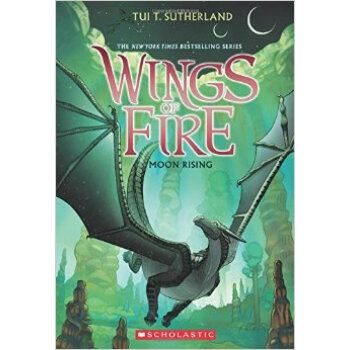
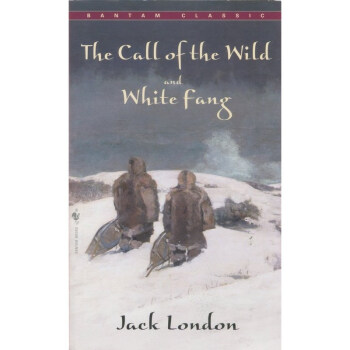
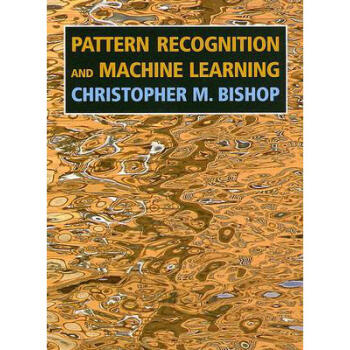
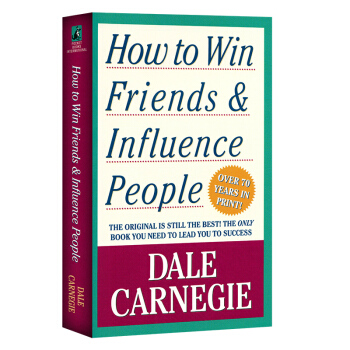


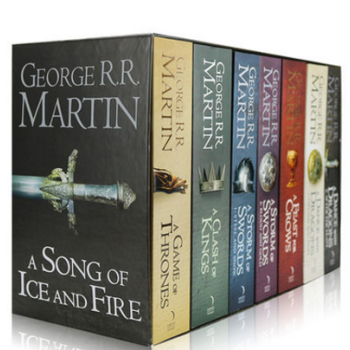


![Curious George Takes a Train 好奇猴喬治坐火車 [平裝] [5歲及以上] pdf epub mobi 電子書 下載](https://pic.windowsfront.com/19000097/571fa7d1-086b-478f-b9de-775f7a0c5cbc.jpg)
![White on Black黑底白字(紙闆書) 英文原版 [平裝] pdf epub mobi 電子書 下載](https://pic.windowsfront.com/19009028/550be682N26fdb706.jpg)